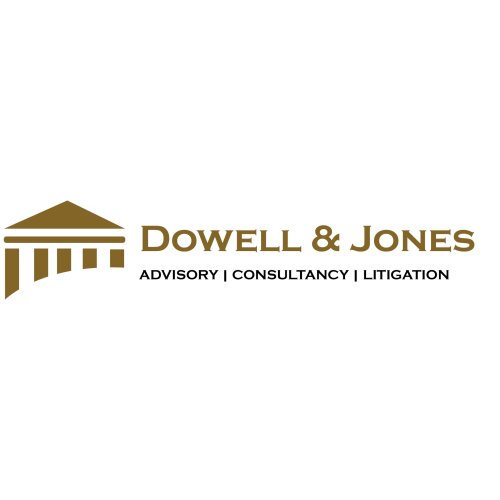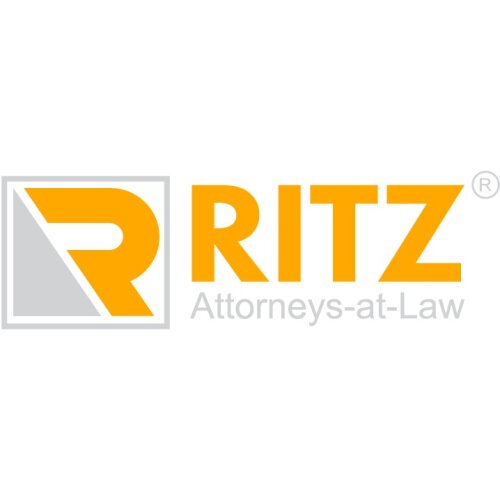Best Structured Finance Lawyers in Blantyre
Share your needs with us, get contacted by law firms.
Free. Takes 2 min.
List of the best lawyers in Blantyre, Malawi
About Structured Finance Law in Blantyre, Malawi
Structured finance refers to complex financial instruments and arrangements that go beyond traditional lending, such as standard bank loans or straightforward debt issuance. In Blantyre, Malawi, structured finance is primarily utilized by businesses, financial institutions, and occasionally government bodies to manage large-scale funding needs, risk mitigation, and capital market transactions. Examples include securitization of assets, project finance (especially in infrastructure and energy sectors), and syndicated loans. Legal oversight ensures these transactions comply with Malawi’s regulations, protect investors, and promote transparency in financial dealings.
Why You May Need a Lawyer
Structured finance involves intricate documentation, regulatory compliance, and negotiation between multiple parties. Common scenarios where legal assistance is invaluable include:
- Structuring or negotiating a large corporate or infrastructure loan using innovative financing tools.
- Engaging in asset-backed financing, such as using receivables or other asset pools for raising capital.
- Participating in a syndicated loan as a lender or borrower, requiring complex agreement documentation.
- Structuring and executing securitization transactions for monetizing pools of assets.
- Ensuring compliance with Reserve Bank of Malawi and other regulatory requirements.
- Resolving disputes related to structured finance arrangements or default scenarios.
- Advising on cross-border transactions that may involve exchange control or anti-money laundering laws.
A lawyer can help navigate legal risks, prepare required documentation, facilitate negotiations, ensure regulatory compliance, and represent your interests in and out of court.
Local Laws Overview
Structured finance in Malawi falls under several regulatory and legal provisions, anchored by both statutory and case law. Laws and regulations relevant in Blantyre include:
- The Companies Act governs corporate entity structuring and formalities for participants in finance transactions.
- The Financial Services Act and the Capital Markets Act regulate the provision of financial services and the structuring of capital market products, such as asset-backed securities.
- The Reserve Bank of Malawi Act and its regulations cover licensing, reporting requirements, and oversight of financial institutions engaged in sophisticated financing activities.
- The Secured Transactions Act provides the legal framework for using movable property as collateral, critical for asset-based structured finance.
- Exchange control regulations affect cross-border structured finance deals, requiring compliance with currency control processes.
- Anti-money laundering laws apply to complex transactions, emphasizing transparency, source-of-funds verification, and due diligence for all parties.
- The Insolvency Act becomes relevant in default or restructuring situations, protecting rights of creditors and debtors alike.
Staying compliant with these laws is essential to avoid legal disputes, penalties, or a failed transaction.
Frequently Asked Questions
What is structured finance, and how is it different from traditional finance in Malawi?
Structured finance involves advanced financing techniques like securitization, syndicated loans, and derivatives, whereas traditional finance focuses on straightforward bank loans or personal lending. Structured finance usually involves multiple parties, asset-backed securities, and risk-sharing mechanisms tailored to large and complex projects.
Can individuals access structured finance products, or are they limited to businesses?
Structured finance products are typically designed for companies, financial institutions, and governments because of their complexity, scale, and regulatory requirements. Individuals rarely participate directly in these transactions in Malawi.
Which regulators oversee structured finance in Blantyre?
The Reserve Bank of Malawi, the Financial Services Authority, and the Malawi Stock Exchange (for capital market instruments) oversee structured finance transactions. Compliance with their regulations is mandatory.
What are the most common structured finance products used in Malawi?
Common products include project finance (especially for infrastructure), syndicated loans, asset-backed lending, and lease securitizations. Securitization and structured bonds are gaining traction as the financial sector develops.
What legal documents are necessary for a structured finance transaction?
Key documents may include facility agreements, security agreements, syndication agreements, trust deeds, offering circulars, and regulatory filings. A legal expert is needed to draft and review these complex agreements.
Do cross-border structured finance deals require special approvals?
Yes, cross-border deals must comply with the Reserve Bank of Malawi’s exchange control regulations. Approvals are often required for the movement of funds and external guarantees.
How are disputes in structured finance transactions resolved in Malawi?
Disputes are resolved through negotiation, mediation, arbitration (if agreed in contracts), or litigation in Malawian courts. Choice of dispute resolution mechanism is typically outlined in transaction documents.
What risks should parties consider in structured finance agreements?
Risks include borrower default, legal non-compliance, counterparty risks, market volatility, and asset performance. Legal advice can help assess and mitigate these risks.
Is it possible to restructure a failing structured finance arrangement?
Yes, restructuring is possible and may involve renegotiating terms, refinancing, asset sales, or invoking default clauses. Legal guidance is crucial throughout the restructuring process to protect all parties’ interests.
How do I choose the right lawyer for structured finance in Blantyre?
Look for a lawyer or firm with experience in corporate and financial law, a track record in structured finance, and familiarity with local and international regulations. Check for recommendations, credentials, and successful transaction history.
Additional Resources
If you need more information or support regarding structured finance, consider the following resources and institutions in Malawi:
- The Reserve Bank of Malawi - Financial Markets Division
- Financial Services Authority of Malawi
- Malawi Stock Exchange
- Malawi Law Society - for referrals to specialized legal practitioners
- Ministry of Finance and Economic Affairs - for government policies and guidelines
- Commercial banks and local law firms with dedicated finance practices
These organizations provide regulatory updates, guidance, and professional referrals relevant to structured finance.
Next Steps
If you require legal assistance with structured finance in Blantyre, Malawi:
- Clarify the nature of your planned transaction or legal issue. Gather any available documentation and identify all parties involved.
- Research and select a reputable lawyer or legal firm in Blantyre with expertise in structured finance.
- Prepare a list of questions or concerns to discuss during your consultation, including timelines, costs, and potential risks.
- Attend your legal consultation and be open about your goals, financial limits, and any prior agreements.
- Work closely with your lawyer throughout negotiations, documentation, compliance checks, and execution of the transaction.
- Maintain ongoing communication with both your legal advisor and financial partners to ensure continued compliance and adapt to any regulatory changes.
Timely professional legal guidance greatly improves the success and security of any structured finance activity in Malawi.
Lawzana helps you find the best lawyers and law firms in Blantyre through a curated and pre-screened list of qualified legal professionals. Our platform offers rankings and detailed profiles of attorneys and law firms, allowing you to compare based on practice areas, including Structured Finance, experience, and client feedback.
Each profile includes a description of the firm's areas of practice, client reviews, team members and partners, year of establishment, spoken languages, office locations, contact information, social media presence, and any published articles or resources. Most firms on our platform speak English and are experienced in both local and international legal matters.
Get a quote from top-rated law firms in Blantyre, Malawi — quickly, securely, and without unnecessary hassle.
Disclaimer:
The information provided on this page is for general informational purposes only and does not constitute legal advice. While we strive to ensure the accuracy and relevance of the content, legal information may change over time, and interpretations of the law can vary. You should always consult with a qualified legal professional for advice specific to your situation.
We disclaim all liability for actions taken or not taken based on the content of this page. If you believe any information is incorrect or outdated, please contact us, and we will review and update it where appropriate.














